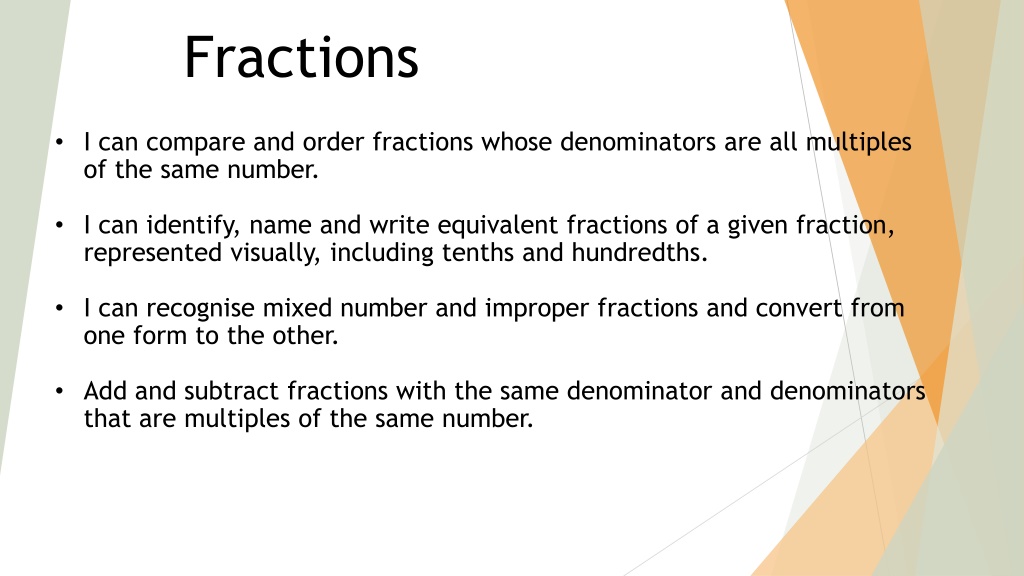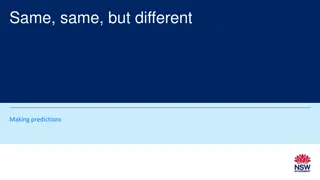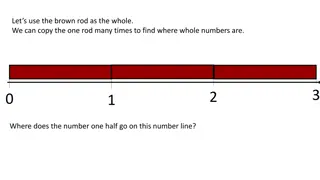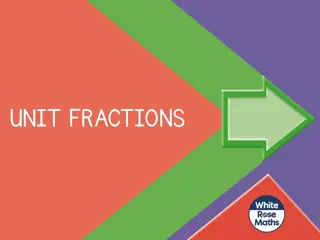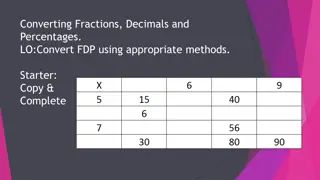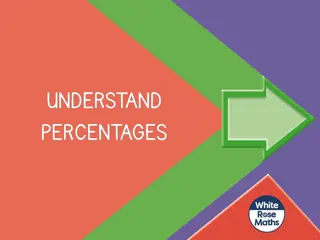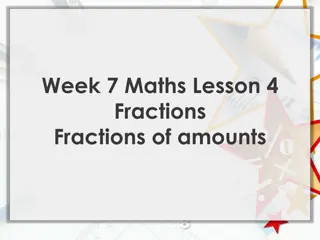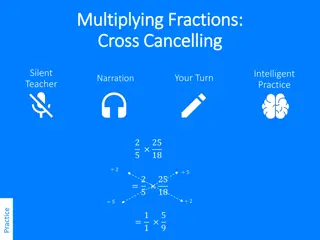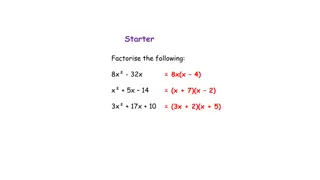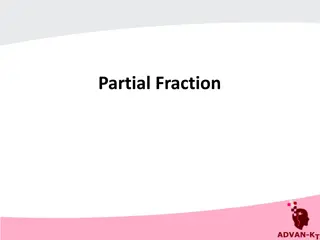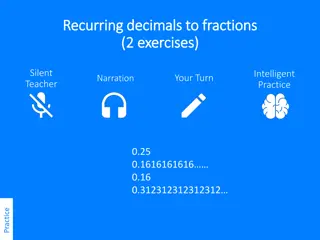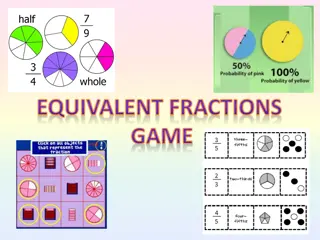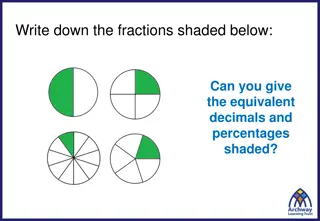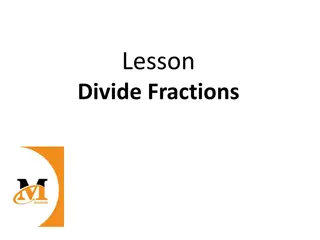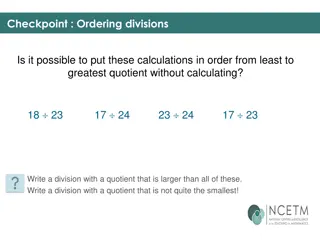Fractions
Learn to compare and order fractions with denominators that are multiples of the same number. Discover how to identify, name, and write equivalent fractions visually, including tenths and hundredths.
Download Presentation

Please find below an Image/Link to download the presentation.
The content on the website is provided AS IS for your information and personal use only. It may not be sold, licensed, or shared on other websites without obtaining consent from the author.If you encounter any issues during the download, it is possible that the publisher has removed the file from their server.
You are allowed to download the files provided on this website for personal or commercial use, subject to the condition that they are used lawfully. All files are the property of their respective owners.
The content on the website is provided AS IS for your information and personal use only. It may not be sold, licensed, or shared on other websites without obtaining consent from the author.
E N D
Presentation Transcript
Fractions I can compare and order fractions whose denominators are all multiples of the same number. I can identify, name and write equivalent fractions of a given fraction, represented visually, including tenths and hundredths. I can recognise mixed number and improper fractions and convert from one form to the other. Add and subtract fractions with the same denominator and denominators that are multiples of the same number.
WALT: Add fractions Warm-up I convert an improper fraction into a mixed number and get 32 5 ? ? Here are four suggestions for what my original fraction might have been. Who is right? ?? ?? ?? ?? ?? ?
By folding and then cutting, cut a piece of paper into 8 equal sections.
? ?+ ? ?
? ?+ ? ?
? ?+ ? ?+ ? ?
? ?+ ? ?
? ?+ ? ? Thinking in terms of our pieces of paper, what would this look like?
? ?+ ? ? Why is this easy to do?
? ?+ ? ? + ? ?
? ?+ ? ?? You can t accurately compare, add, or subtract fractions that don t have the same denominator.
? ?+ ? ?? Before we add these fractions,let s use our understanding of equivalent fractions to make the denominators the same.
? ?+ ? ??
x2 ? ?+ ? ?? ? ?= ? ?? We can convert this to ??by multplying Whatever we do to the bottom, we must to do the top x2
? ?+ ? ?? ??+ ? = ? ??
? ?+ ? ??
2 ? ?+ ? ?? ??= ? ? ? Or we can convert this to Whatever we do to the bottom, we must to do the top 2 ? by dividing
? ?+ ? ?? ?+ ? = ? ?
? ?+ ? ?? Why do you think we have to be extra careful when dividing to equate denominators?
? ?+ ? ??
? ?+ ? ?
? ??+ ? ?
? ??+ ? ? + ? ? Which denominator could we convert all three fractions to?
